Sorted by date Results 1 - 9 of 9
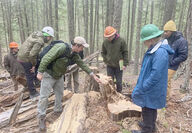
Forests on the west slope of Oregon’s Cascade Range experienced fire much more often between 1500 and 1895 than had been previously thought, according to new research by scientists at Oregon State University. The findings provide important insight, the authors say, into how landscapes might adapt to climate change and future fire regimes. James Johnston of the OSU College of Forestry led the study, which was published in Ecosphere. “Wildland fire is a fundamental forest ecosystem process,” he sa...
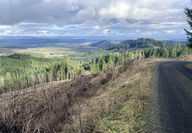
Forest modeling by Oregon State University scientists shows that a site’s productivity – an indicator of how fast trees grow and how much biomass they accumulate – is the main factor that determines which time period between timber harvests allows for maximum above-ground carbon sequestration. The findings, published in the journal Forests, are important for Pacific Northwest forest managers seeking to strike an optimal balance between harvesting and carbon sequestration, an important tool...
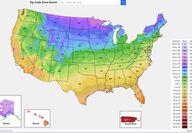
The U.S. Department of Agriculture today released its new Plant Hardiness Zone Map, the national standard by which gardeners can determine which plants are most likely to survive the coldest winter temperatures at a certain location. The USDA describes the latest map, jointly developed by Oregon State University’s PRISM Climate Group and the USDA’s Agricultural Research Service, as the most accurate and detailed it has ever released. PRISM, part of the OSU College of Engineering, stands for Par...

A power transmission grid can be destabilized by hackers who manipulate smart meters to create an oscillation in electricity demand, researchers at the Oregon State University College of Engineering have shown. The study is important because understanding where a grid’s vulnerabilities lie and what they look like is the first step in designing protection mechanisms, says associate professor of electrical engineering and computer science Eduardo Cotilla-Sanchez, who led the project with g...
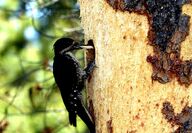
A species of woodpecker once thought to limit itself to recently burned areas can breed successfully in the unburned parts of fire-prone landscapes too, according to a study by Oregon State University scientists that holds key implications for improved conservation and forest management efforts. The research led by doctoral student Mark Kerstens and Jim Rivers, a faculty member in the OSU College of Forestry, sheds new light on the black-backed woodpecker, which lives throughout northern North...
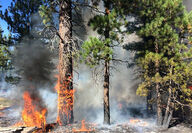
Oregon State University research into the ability of a wildfire to improve the health of a forest uncovered a Goldilocks effect – unless a blaze falls in a narrow severity range, neither too hot nor too cold, it isn’t very good at helping forest landscapes return to their historical, more fire-tolerant conditions. The study led by Skye Greenler, a graduate research fellow in the OSU College of Forestry, and Chris Dunn, an assistant professor in the college, has important implications for lan...

Widespread tree scorch in the Pacific Northwest that became visible shortly after multiple days of record-setting, triple-digit temperatures in June 2021 was more attributable to heat than to drought conditions, Oregon State University researchers say. In a paper published in Tree Physiology, a team led by Christopher Still of the OSU College of Forestry cites evidence that leaf discoloration and damage are consistent with direct exposure to solar radiation during the hottest afternoons of the...
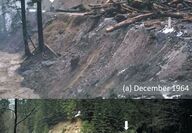
A long-term Pacific Northwest study of landslides, clear-cutting timber and building roads shows that a forest's management history has a greater impact on how often landslides occur and how severe they are compared to how much water is coursing through a watershed. Findings of the research, led by associate forest engineering associate professor Catalina Segura and graduate student Arianna Goodman of the Oregon State University College of Forestry, were published in the journal Earth Surface...

The number of trout in a southern Oregon stream system showed no decline one year after a fire burned almost the entire watershed, including riparian zone trees that had helped maintain optimal stream temperatures for the cold-water fish. The research by Oregon State University sheds light on the ability of steelhead, cutthroat, and rainbow trout to endure the higher water temperatures expected to accompany climate change and its manifestations, including increased frequency, extent, and...